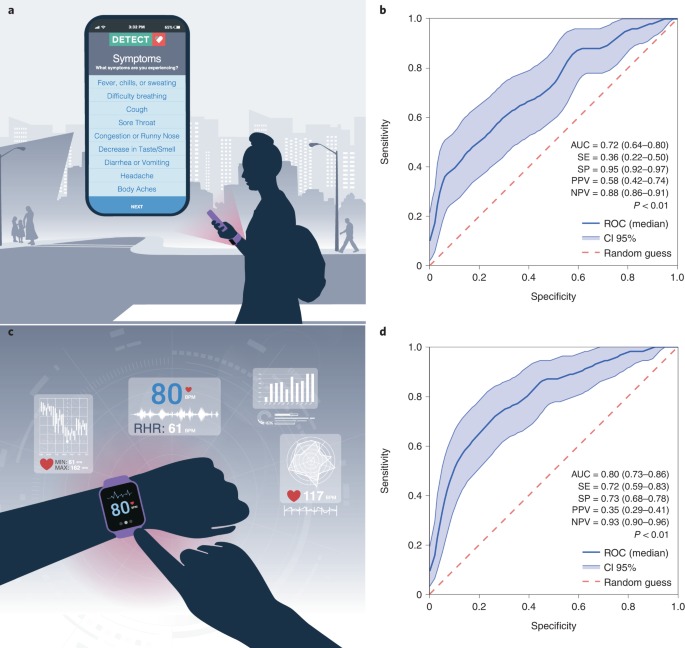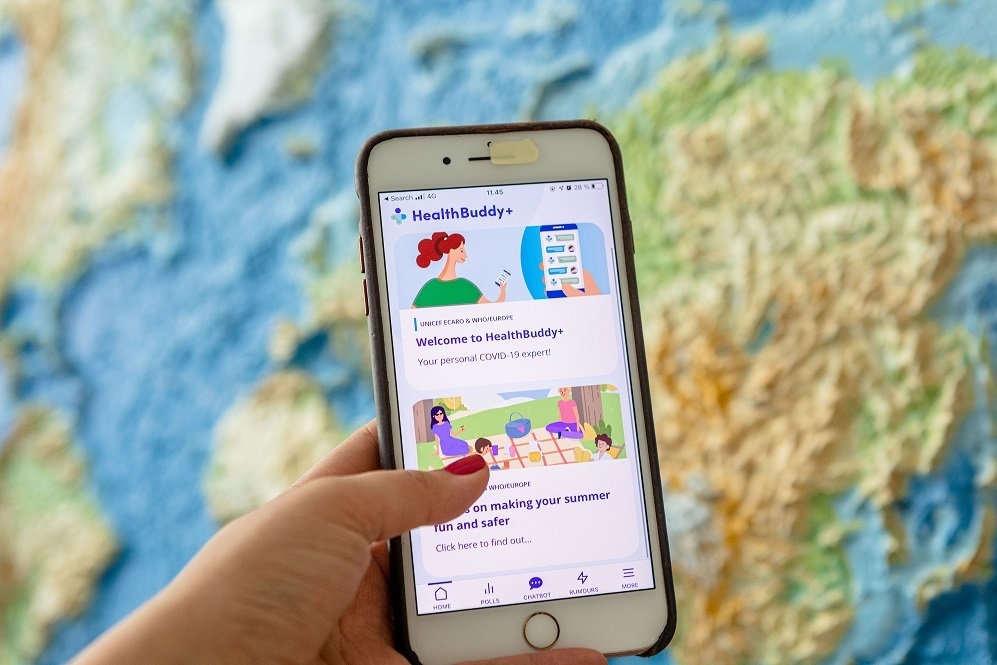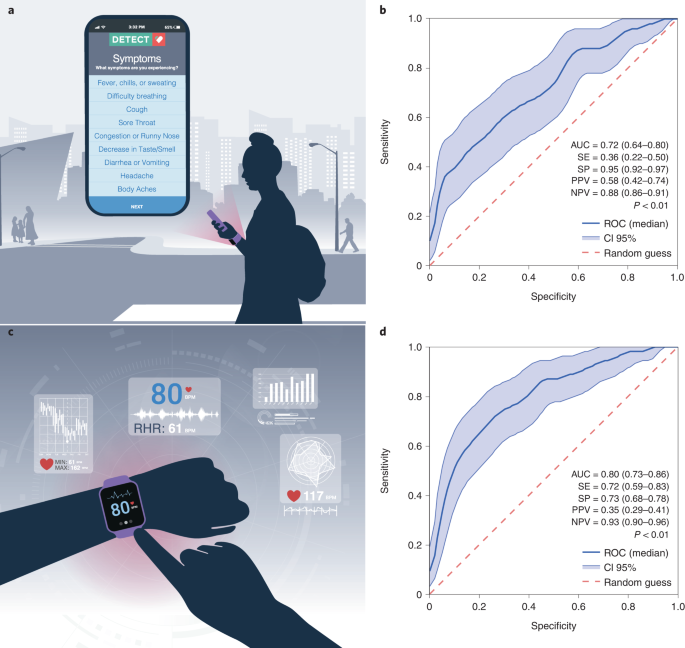Pharmageek

At the beginning of the COVID-19 pandemic, when false information about the virus began to spread on Twitter, physicians and scientists from Northwestern Medicine and other institutions banded together to combat the deadly misinformation and disinformation and support one another when they ultimately were attacked online for doing so.
Lire l'article complet sur : www.news-medical.net

As of June 22, 2022, 3413 cases of monkeypox from 50 countries have been confirmed
by WHO. Accurate and timely predictions on where and how fast monkeypox might spread
are crucial to control the outbreak, and these could be provided by crowdsourced data.
Such data were essential in characterising and predicting the spread of SARS-CoV-2
during the early stages of the pandemic. Given the promise they show for emerging
infectious diseases, have crowdsourced predictions for such diseases come of age?
Lire l'article complet sur : www.thelancet.com

At the beginning of the COVID-19 pandemic, analog tools such as nasopharyngeal swabs for PCR tests were center stage and the major prevention tactics of masking and physical distancing were a throwback to the 1918 influenza pandemic. Overall, there has been scant regard for digital tools, particularly those based on smartphone apps, which is surprising given the ubiquity of smartphones across the globe. Smartphone apps, given accessibility in the time of physical distancing, were widely used for tracking, tracing and educating the public about COVID-19. Despite limitations, such as concerns around data privacy, data security, digital health illiteracy and structural inequities, there is ample evidence that apps are beneficial for understanding outbreak epidemiology, individual screening and contact tracing. While there were successes and failures in each category, outbreak epidemiology and individual screening were substantially enhanced by the reach of smartphone apps and accessory wearables. Continued use of apps within the digital infrastructure promises to provide an important tool for rigorous investigation of outcomes both in the ongoing outbreak and in future epidemics. An overview of apps for outbreak epidemiology, individual screening and contact tracing during the COVID-19 pandemic.
Lire l'article complet sur : www.nature.com

“Digital solutions to health risks raised by the COVID-19 infodemic” is a new WHO/Europe policy brief that calls for a whole-of-society approach to improve the public health response to the COVID-19 infodemic and ensure we are better prepared for future health emergencies. In this Q&A, we highlight the main questions that the policy brief addresses and share some of the policy considerations it proposes. 1. What is an infodemic, and why has it been so damaging during the COVID-19 pandemic?An infodemic – or information epidemic – is defined as an overabundance of information, including false or misleading information, in digital and physical environments during an emergency.This has been particularly acute during COVID-19, as false and misleading information has reduced the impact of evidence-based responses that governments and health authorities have made to curb the pandemic. Exposure to false information – both online and offline – has been linked to increased health risks as a result of harmful behaviours, such as using unproven, ineffective treatments, and not adopting recommended protective measures, including vaccination and mask-wearing. The confusion sown by the COVID-19 infodemic has also led to worsened mental health and emotional well-being, and a drop in trust in health-care authorities. 2. What are the main digital solutions that the policy brief identifies, and why are they important in the infodemic response?Social media and the internet have often been used to disseminate overabundant, false and misleading information regarding COVID-19. At the same time, they are key spaces where solutions can be found and implemented. Several digital innovations have been developed to respond to the infodemic, for example:fact-checking and false information reporting and debunking mechanisms; social listening tools (tools to track users’ reactions to pertinent topics on social media platforms) augmented by artificial intelligence (AI);monitoring programmes, multistakeholder coordination initiatives and national regulatory frameworks that respect the principles of freedom of expression; anddigital health literacy interventions to help people recognize misinformation and improve their ability to spot it (also called inoculation). 3. Who should be involved in the infodemic response?Implementing digital solutions to confront the infodemic calls for a whole-of-society approach. This means cooperating with everyone, from the public to social media platforms, the information technology sector, health policy-makers, fact-checking and civil society organizations, and United Nations organizations, among others. The shared objective is to improve the WHO European Region’s public health response to the COVID-19 infodemic and enhance preparedness for future health emergencies. 4. What is WHO doing to address the infodemic in the Region and globally?In response to the infodemic, WHO has launched a variety of initiatives at global and regional levels. In the European Region, these are embedded in the areas of risk communication and community engagement (for example, monitoring for and responding to high-risk infodemic signals through online and offline systems). The initiatives link to digital health (for example, building capacity for electronic learning among national health authorities) as well as behavioural and cultural insights.The brief outlines how WHO/Europe is bringing to life operational and policy considerations in support of and in close coordination with Member States and other subnational and international governmental and nongovernmental stakeholders.Concrete examples of these efforts include the development of digital communication strategies; mobile apps disseminating accurate health information; AI-based innovations for rumour tracking, community feedback and social listening; training, events and conferences to promote infodemic management; social listening and behavioural insights surveys; rumour-tracking mechanisms and multi-language fact-checking; and partnerships with social media and web companies. With this publication, another valuable tool is added to this list. 5. What considerations does WHO/Europe propose to help Member States improve their infodemic responses? The brief proposes a list of policy considerations for all stakeholders, including reinforcing multistakeholder networks for infodemic management; strengthening overall risk communication and community engagement; implementing continuous monitoring of online harmful and false content; improving digital literacy approaches and organizing infodemic management trainings; advocating for infodemic management; and encouraging policy changes to make online platforms safer for users.
Lire l'article complet sur : www.who.int





